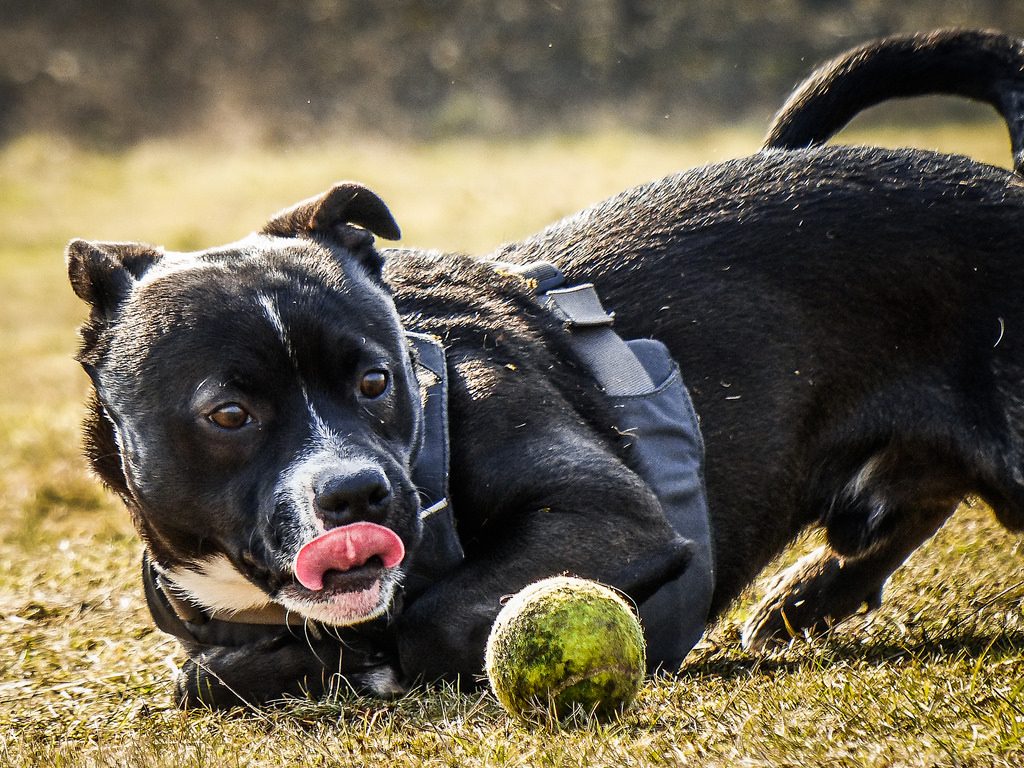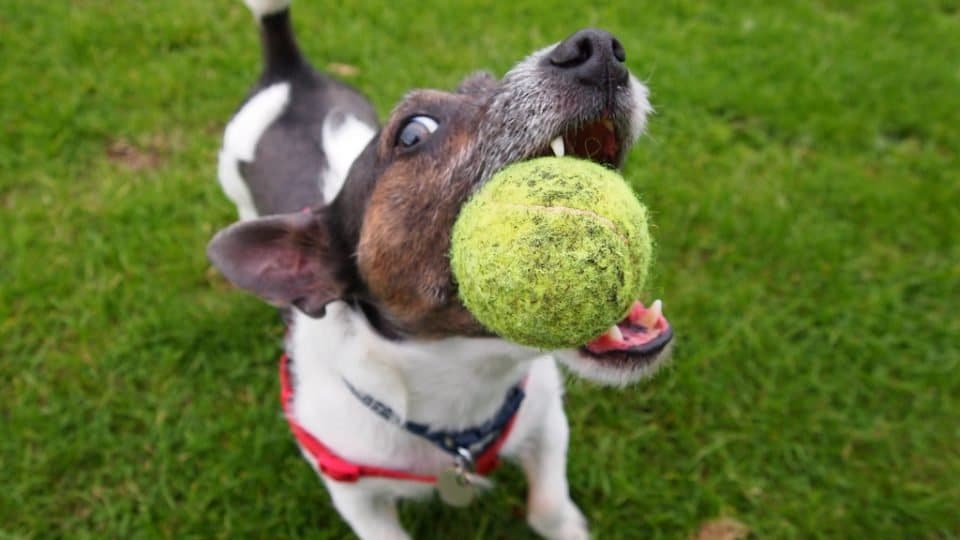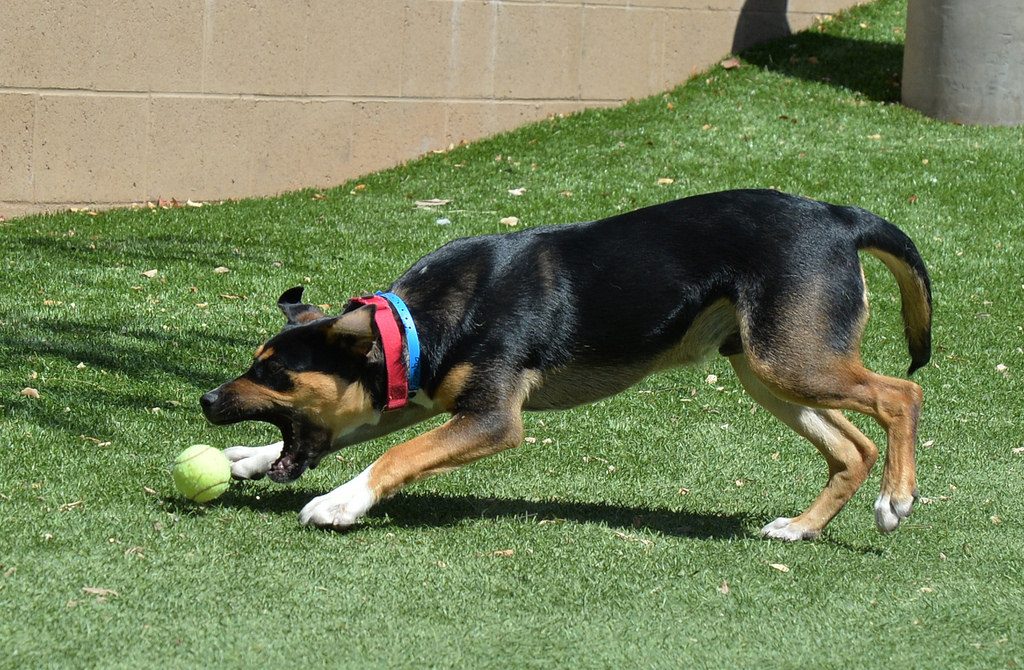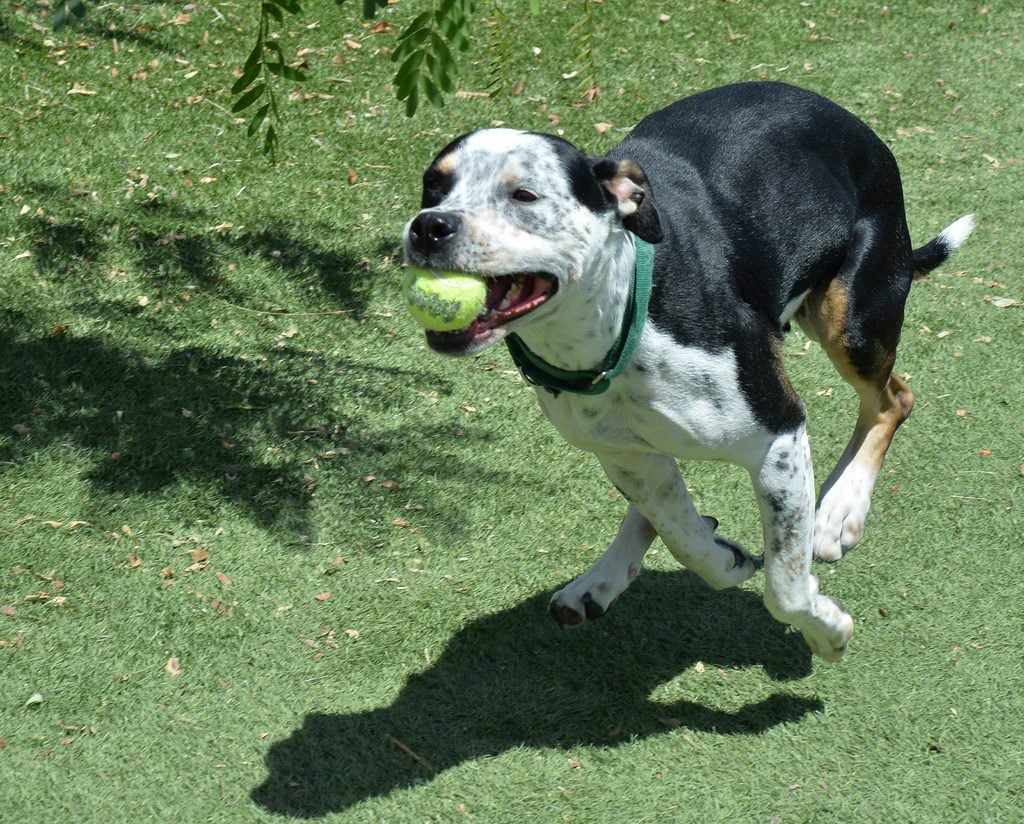- Not a substitute for professional veterinary help.
Playing fetch is a wonderful form of exercise for your four-legged best friend (not to mention your throwing arm), but for some dogs, the ball is more than a toy. Doggy OCD does happen and for some dogs, especially retrieving breeds, playing fetch is their greatest obsession.
If your dog carries a slobbery ball around in their mouth at all times, stares wide-eyed at the basket on the shelf when you put her favourite toy away, or can’t be distracted from fetch, even by a treat, she may be overly attached.
Read on to learn how to manage your dog’s obsession with playing fetch.
How to tell if your dog is fetch-obsessed

via flickr/s2ublack
Dogs get excited about toys, and some can play fetch for an hour without tiring, but there’s a difference between enthusiasm and obsession. Maybe this description, from an online pet forum commenter, sounds familiar to you:
“She literally wants to play ALL the time. When I let her out after I get home from work, she runs straight to the place she left the ball before going up for the day. I have a strange feeling she is in there thinking about that dang ball all day…”
Here are common signs your dog may be obsessed with fetch:
- She goes into a trance-like state when the ball is out (tense body, glazed eyes, fixated on the ball and only the ball, to the exclusion of everything else)
- It’s increasingly difficult to distract your dog from playtime with praise, walks, treats, and other rewards
- She guards her ball or toy at the park, and growls or snaps at other dogs who try to take it
- She demonstrates signs of anxiety (panting, salivating, destructive behaviour, etc.) when the ball is out of reach, or when she brings it to you and you don’t throw it
Plenty of dogs love to play fetch but aren’t obsessed, and will play with other toys, dogs, and people. But if your best friend is fixated on the ball to the exclusion of all else, it may be time to interfere.
Why fetch obsession can be a serious problem
According to WebMD, “a dog who displays compulsive behaviour repeatedly performs one or more behaviours over and over, to the extent that it interferes with his normal life.” If your dog’s day is built around when she can next play with the ball, chances are her fetch obsession is taking a toll.
There are a few other reasons a fetch obsession can be dangerous:
- Your dog could be so fixated on a ball that she runs into obstacles or the street
- She could react negatively to dogs and children who try to take her ball
- Without supervision and intervention, a fetch-obsessed dog may run herself into exhaustion, not taking a break for water or a nap
Of course, there’s one other big side effect of fetch obsession: it’s stressful for humans!
Of course, there’s one other big side effect of fetch obsession: it’s stressful for humans! Worrying over and managing your dog’s obsessive tendencies can have a negative impact on your relationship with her. For her sake and yours, if your dog has a distressing ball fixation, it’s time to take action.
How to lessen the obsession with playing fetch
The good news is, your dog’s ball obsession might not be permanent. Time, training, and attention are the most effective tools to managing your dog’s obsession with fetch.
There are steps you can take to help make fetch fun and relaxing for you and your dog:
- Create a routine for your dog to teach her that fetch time is a guaranteed part of her day, but one with a time limit. Ball-crazy dogs can get anxious and worked up if they don’t know when they’ll get to play with their beloved ball again. Making fetch a scheduled, dependable activity can lessen the panic.
- Teach your dog a command for when fetch time is over. Always use the same command, such as “all done” or “that’s enough,” to indicate that a game of fetch has come to an end.
- Limit access to the object of obsession. When it’s not playtime, the ball or other fetch object should be kept high up and out of sight
- Diversify your dog’s toys. If she’s obsessed with one ball or toy in particular, introduced a variety of them in different sizes, shapes, textures, and materials. Change up which item you use in a game of fetch to help break the pattern of fixating on one.
- Make sure your dog gets plenty of exercise. A tired dog is a calmer dog.
- Remain calm. That’s right, in addition to helping calm your dog, you also need to monitor your own anxiety levels. Managing a ball-crazy dog can be stressful, but the more calm you can project, the more helpful you can be to your dog
It may sound like a lot of work to help your dog relax around tennis balls, but the good news is, it’s work that can double as play.
It may sound like a lot of work to help your dog relax around tennis balls, but the good news is, it’s work that can double as play.
Put the ball obsession to work
For many dogs, the right combination of physical activity, training, and positive reinforcement will help turn a ball obsession into a manageable enthusiasm. But if your dog is particularly high-energy and motivated by the presence of a tennis ball, maybe it’s time to turn their obsession into a strength
Dog sports are a fun way to channel your dog’s energy and attention. Consider dock diving (jumping for height and distance off a dock into a body of water, usually in pursuit of a coveted ball or toy) or flyball (in which dog teams race over a line of hurdles to a box that releases a tennis ball, which the dog then carries back to their handlers). These activities are great exercise and bonding activities for dog and human alike.
True obsessive-compulsive tendencies in dogs can be more serious than the ball fixation described here. If you’re worried your dog may have a more serious issue with compulsive behaviour, consult a vet and/or canine behaviourist. But if you’ve got an otherwise healthy, happy fetcher on your hands, consider it a blessing: you and your dog will always have something to do together!




